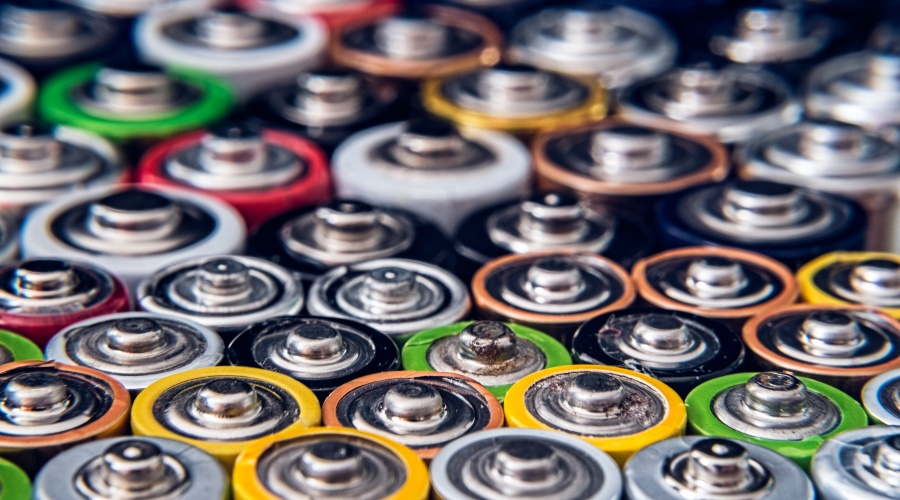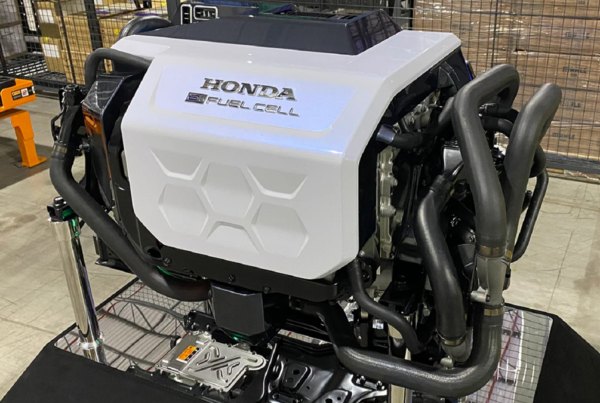
Fossil fuels have accounted for 90% of greenhouse gas (GHG) emissions worldwide since 1900. Additionally, about 78% were derived from fossil fuel combustion and industrial operations between 1970 and 2011.
Despite calls for stringent policies that better regulate emissions and improve air quality, many economic sectors still produce large quantities of carbon dioxide.
Warmer atmospheric temperatures have threatened biodiversity, contributed to rising sea levels and altered weather so much that climate change is now detectable on any single day. Renewable energy has become a cornerstone of sustainability in combatting this, with environmental scientists and engineers seeking to improve energy efficiency, reliability and safety.
Current research on lithium-ion batteries and hydrogen fuel cells has garnered growing scientific and public interest. The global market size for lithium-ion batteries has anticipatory growth of $116.6 billion by 2030. Meanwhile, the global market for hydrogen fuel cell technologies is also expected to reach $131.06 billion simultaneously.
Promising Solutions for Decarbonization
Studies have concentrated on solving challenges associated with lithium-ion batteries and hydrogen fuel cell usage to decarbonize the auto industry.
Production of lithium-ion batteries is thriving with the growing popularity of electric vehicles. At the same time, hydrogen fuel cells are often utilized as an energy source and for storage in transportation, buildings and grid systems.
Operating electric vehicles is more sustainable than thermal cards, but lithium-ion batteries contain cathode materials — lithium, cobalt, graphite and nickel — which undergo GHG-producing extraction processes and manufacturing. They are designed to hold more power in smaller apparatuses, so they also pose an increased risk for hazards and combustion if pressurized or ruptured.
Fuel cells are a safer, emissions-free alternative. Net-zero devices produce electricity through a chemical reaction, with hydrogen acting as the primary reactionary trigger.
Fuel Cells: Enhanced Efficiency for Battery Power
These two advancing technologies are not mutually exclusive, as fuel cell power has the potential to enhance lithium-ion batteries.
Take the electric vehicle movement, in which hydrogen fuel cells can improve distance and refueling issues while reducing GHG emissions associated with lithium-ion batteries.
In addition to creating and storing electricity using hydrogen, fuel cells improve lithium-ion batteries in the following ways:
- Generating net-zero electricity to start the car and vehicle accessories
- Storing energy for regenerating braking and increasing electric traction motor to drive the wheels
- Recharging the reserve battery
Lithium-ion batteries will always be a crucial component of electric vehicles regardless of how the power source and engine are integrated, but they’re not perfect. Electric cars powered solely by hydrogen fuel cells also present several challenges.
On their own, lithium-ion batteries and hydrogen fuel cells can’t operate the powertrain under heavy loads for long distances, which makes it increasingly difficult to accelerate and brake. Hydrogen fuel cell electric vehicles also have an unreliable power output during acceleration.
However, because hydrogen fuel cells create and store their own electricity, there is ample room for harnessing their full potential to complement battery power.
Fueling a Greener Future
Sustainability in the age of rampant climate change has never been more crucial — and a shift toward net-zero transportation is an ideal place to start reducing GHG emissions. Developments of hydrogen fuel cells to boost lithium-ion batteries can reshape automotive energy for a greener future.


Jane Marsh, Contributor
The views and opinions expressed herein are those of the authors and do not necessarily reflect the official policy or position of Fuel Cells Works, its directors, partners, staff, contributors, or suppliers. Any content provided by our contributors or authors are of their own opinion and are not intended to malign any religion, ethnic group, club, organization, company, individual or anyone or anything.
Read the most up to date Fuel Cell and Hydrogen Industry news at FuelCellsWorks




